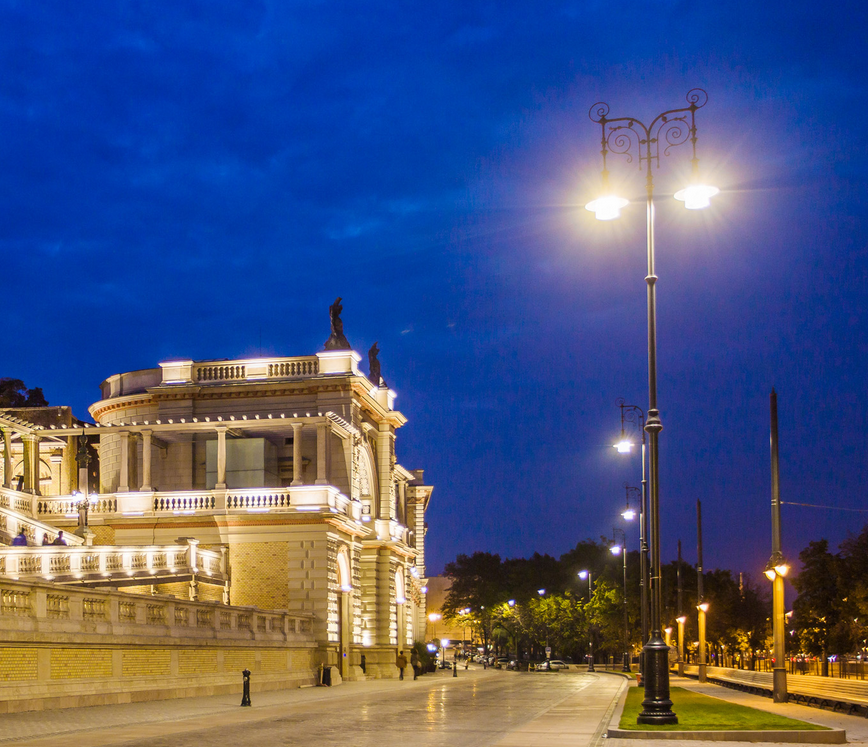EU spending watchdog OLAF loses access to documents case against Hungarian civil association after Court finds the protection of inspections cannot serve as a reason to refuse access after such inspections are closed.

The light that failed
In 2015, the town of of Gyál, a suburb of Budapest, ordered new street lightning to be installed by private firm Elios Zrt, in a project co-financed by the EU. At the time, prime minister Orbán’s son-in-law, István Tiborcz, held shares in this firm. Local citizens considered that the firm had done a sloppy job, installing below-quality lamps. According to one report,
…the streets in the settlements in question were even darker than before at night.
It subsequently turned out that EU spending watchdog OLAF had investigated the project for serious irregularities in the procurement process, after it emerged that the authorities had issued 17 tenders until Elios came out on top with the best bid. Moreover, a shareholder of the firm had been involved in drafting these tenders.
While the initial Hungarian investigation was closed in 2016 finding no evidence of criminal activity, OLAF in its report of December 2017 found that 43.7 million euros might have been siphoned off in the process of the construction works. It forwarded these findings to the Hungarian public prosecutor’s office and subsequently closed the case. The Hungarian authorities thereafter opened, then closed, another investigation, again without proceeding to prosecute.
When the citizen collective learned about the OLAF report, they requested access to it in March 2019. In May 2019, OLAF refused access to the report, based on its forming part of the document trail pertaining to an inspection (a potential exception ground mentioned under article 4(2), third indent of access to documents law Regulation 1049/2001). Subsequently, the Hungarian citizen group contested this decision before the General Court of the EU, with the European Commission acting on behalf of OLAF as the responsible institution. They received legal aid from the Hungarian Civil Liberties Union.
The general presumption and its limits
The Court of Justice of the EU has previously established that inspections-related documents are covered by a so-called ‘general presumption’ against disclosure, a court doctrine according to which a specific exception is so commonly applicable to certain categories of documents that they can be presumed to be non-disclosable. The general presumptions doctrine reverses the general rule of “open, unless”, which obliges EU bodies to justify non-disclosure, forcing applicants to put forward reasons why such a presumption would not exist.
However, in the present case, the General Court did not go along with OLAF’s reasoning, as becomes clear from a press release of the unpublished judgment issued on 1 September. In this case, the General Court establishes that the general presumption pertaining to inspections can only be invoked for the duration of the inspection. In the present case, the inspection had been closed, and recommendations had been submitted to the Hungarian authorities. The prospect of future proceedings being brought on the basis of the report constituted an insufficient ground for relying on the general presumption in question, as such a line of argument is
...dependent on an uncertain, future and possibly distant event,
depending on the speed and diligence of the various authorities.
Consequently, OLAF’s decision to deny access to the entire document was annulled. Nevertheless, it remains in principle still free to justify non-disclosure of the document on the same argument, provided it does so in a sufficiently reasoned manner to the appropriate legal standard (that is, if it is able to show that disclosure would entail a specific, actual, and non-hypothetical risk to the public interest in the inspection in question).
The judgment was welcomed on twitter by investigative journalist Peter Teffer as a clarification of the scope of the inspections exception.
And, was there fraud?
From the press release, it remains impossible to establish whether, in OLAF’s judgement, Elios has indeed engaged in fraudulent practices, as the citizen association of Gyál had wanted to find out. The details of the OLAF report may yet become clear if, following the recent judgment, the watchdog proceeds to disclose the requested report.
What is known however is that the Hungarian authorities, following the investigations, eventually decided to refrain from taking up co-financing from the EU, instead placing the entire payable amount to the Hungarian budget. Orbán’s son-in-law Tiborcz, meanwhile, sold his shares as the OLAF investigation got under way. The episode has been described by Hungarian Civil Liberties Union as “the most scandalous corruption cases since Fidesz took power in 2010”.
The present access to documents case is not the first of its kind against OLAF. On various previous occasions, proceedings have been brought against the Commission over the watchdog’s refusal to grant access to documents, inter alia related to a staff appointment procedure.
Further background information to the court case on the basis of reports by the Hungarian Civil Liberties Union was subsequently added to this article.


One reply on “Court limits protection of inspections exception in case against OLAF”
[…] serve as a reason to refuse access after such inspections are closed. Read more about the case on Open Government in the EU, 13 September […]